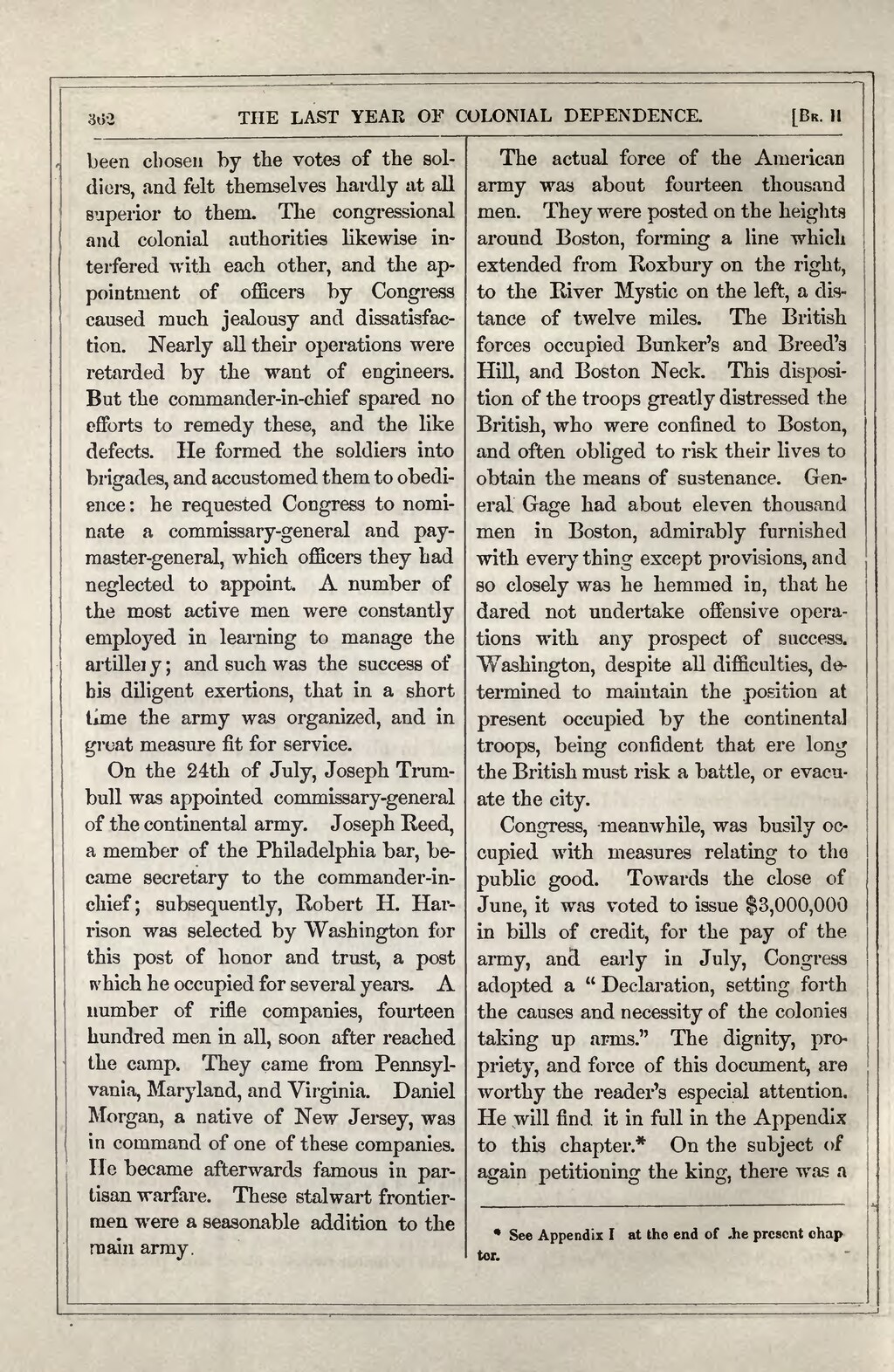been chosen by the votes of the soldiers, and felt themselves hardly at all superior to them. The congressional and colonial authorities likewise interfered with each other, and the appointment of officers by Congress caused much jealousy and dissatisfaction. Nearly all their operations were retarded by the want of engineers. But the commander-in-chief spared no efforts to remedy these, and the like defects. He formed the soldiers into brigades, and accustomed them to obedience: he requested Congress to nominate a commissary-general and paymaster-general, which officers they had neglected to appoint. A number of the most active men were constantly employed in learning to manage the artillery; and such was the success of bis diligent exertions, that in a short time the army was organized, and in great measure fit for service.
On the 24th of July, Joseph Trumbull was appointed commissary-general of the continental army. Joseph Reed, a member of the Philadelphia bar, became secretary to the commander-in-chief; subsequently, Robert H. Harrison was selected by Washington for this post of honor and trust, a post which he occupied for several years. A number of rifle companies, fourteen hundred men in all, soon after reached the camp. They came from Pennsylvania, Maryland, and Virginia. Daniel Morgan, a native of New Jersey, was in command of one of these companies. He became afterwards famous in partisan warfare. These stalwart frontier-men were a seasonable addition to the main army.
The actual force of the American army was about fourteen thousand men. They were posted on the heights around Boston, forming a line which extended from Roxbury on the right, to the River Mystic on the left, a distance of twelve miles. The British forces occupied Bunker's and Breed's Hill, and Boston Neck. This disposition of the troops greatly distressed the British, who were confined to Boston, and often obliged to risk their lives to obtain the means of sustenance. General Gage had about eleven thousand men in Boston, admirably furnished with every thing except provisions, and so closely was he hemmed in, that he dared not undertake offensive operations with any prospect of success. Washington, despite all difficulties, determined to maintain the .position at present occupied by the continental troops, being confident that ere long the British must risk a battle, or evacuate the city.
Congress, meanwhile, was busily occupied with measures relating to the public good. Towards the close of June, it was voted to issue $3,000,000 in bills of credit, for the pay of the army, and early in July, Congress adopted a "Declaration, setting forth the causes and necessity of the colonies taking up arms." The dignity, propriety, and force of this document, are worthy the reader's especial attention, He will find it in full in the Appendix to this chapter.[1] On the subject of again petitioning the king, there was a
- ↑ See Appendix I at the end of the present chapter.
